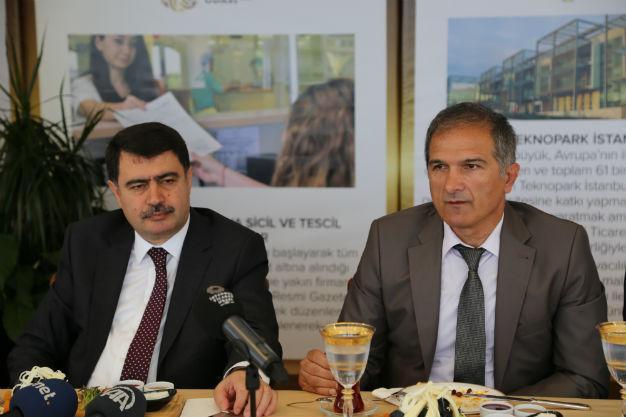Istanbul a safe metropolis, says Governor Şahin
ISTANBUL

AA photo
Serious work is being carried out to maintain security and peace in Istanbul, Istanbul Gov. Vasip Şahin has said in a meeting with journalists on the current security situation in Turkey’s biggest city while praising the overall safety of the city.
“In Istanbul, where 15 million people live, the average homicide rate does not go over 1 or 2 percent. Of course we do not want even that to be the case. But when you look at big metropolises like this, Istanbul is really very safe. As far as the metropolis’ security is concerned, Istanbul is one of the safest metropolises in the world aside from terror threats. In the city where 15 million people live, we have an average of 900 incidents per day. This includes very simple injuries as well as accidents, fires and small-scale robberies,” said Şahin, adding that compared to last year, there was a 9 percent decline in security incidents in Istanbul.
“Istanbul is a world city. It is a big metropolis but still incorporates Anatolia’s codes. Morals, ethics, faith, family and other values still tolerate many things. These values help correct wrong behavior. Therefore, when looked from this perspective, we are, as a metropolis, at a good point. At the end of the day, people search for the ideal. Fifteen million is our official population. Besides from this, there are Syrians, daily visitors and tourists,” said Şahin.
During the meeting, the governor also talked about Istanbul’s Syrian residents and the efforts being expended to integrate them into society. Claims that the “Syrians have arrived, so crime rates have increased” is unfair, he said.
“Around 500,000 Syrians live in Istanbul. The rate of those taking part in crimes does not exceed 5,000 to 10,000... There are also some education projects for the integration of the Syrians. They are getting involved in Turkish classes. We are educating around 50,000 students. We will increase this number. Syrian teachers are also being utilized in this regard. We have also developed a project against begging. Begging has declined in central locations. If [Syrian beggars] continue this job, we sent them to the camps with their families,” said Şahin.
